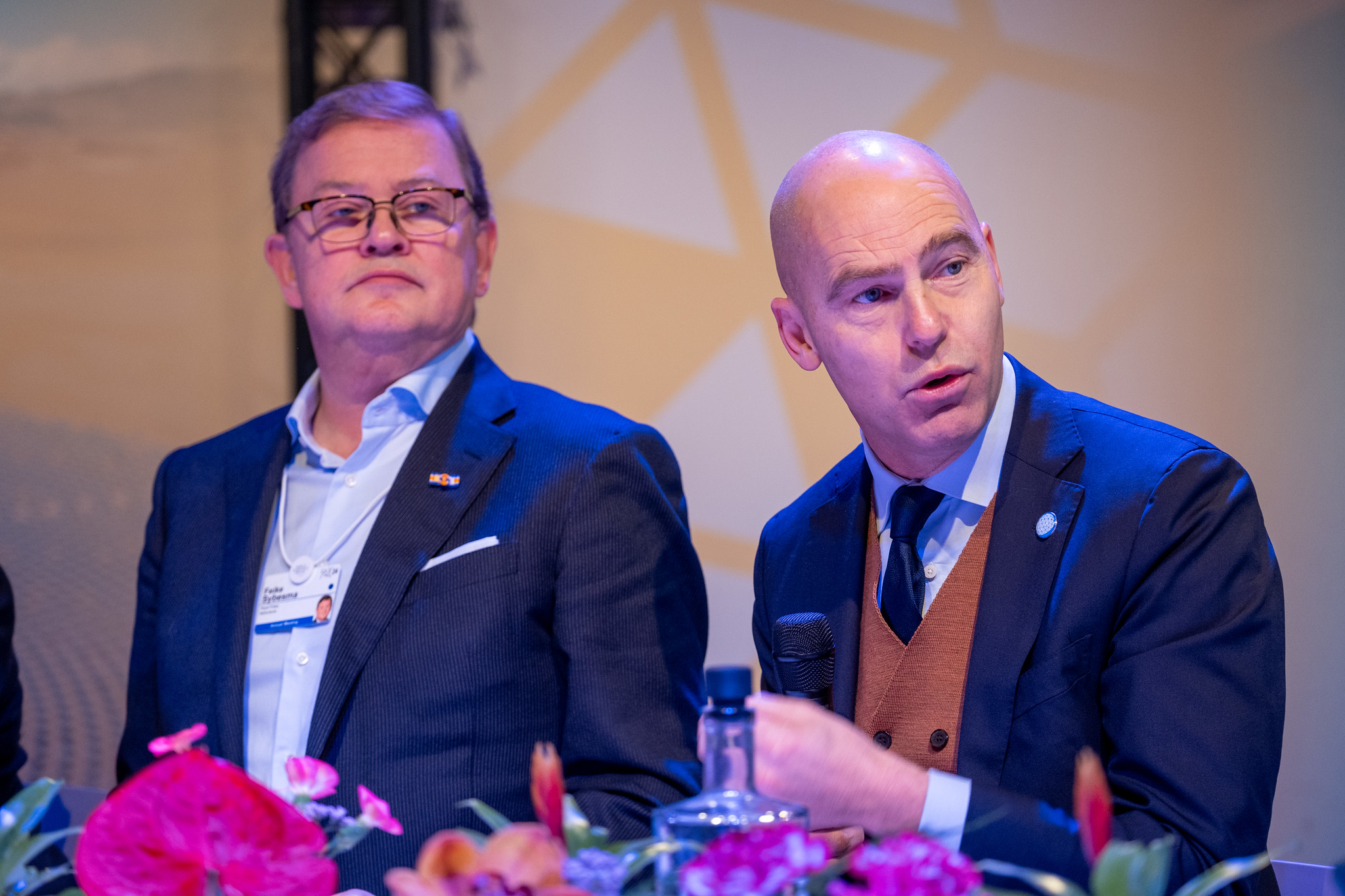GCA and the World Economic Forum host Business Dialogue on Climate Adaptation and Resilience in Davos
D
avos, Switzerland, 16 January 2024 – The Global Center on Adaptation (GCA) and the World Economic Forum (WEF) brought together business leaders with their counterparts from government, philanthropy, multilateral development banks, and NGOs for a strategic exchange on how to develop markets for private sector-led solutions to climate adaptation and resilience.
The dialogue in Davos consulted on the plans for a Global Business Adaptation Hub, a collaborative effort across industries, and between businesses and governments, to realize the opportunity of increasing the role of the private sector in adaptation action.
At the dialogue, Feike Sjibesma, GCA Co-Chair and WEF Alliance of CEO Climate Leaders Co-Chair, and Prof. Patrick Verkooijen, GCA CEO, sought the perspectives of business leaders on how to stimulate more private sector investment in this crucial dimension of climate action, and the role a business hub can play in harnessing the private sector’s innovation and capital to address climate change adaptation.

The dialogue featured participants from a range of sectors including agriculture, biotechnology, payment systems, pension funds, energy, banking, waste management, insurance, software development, and professional services.
Ahead of its Annual Meeting, the WEF published its annual Global Risks Report setting out the most severe risks expected over the next decade. The report confirmed that environmental hazards continue to dominate in both the short and long term reinforcing the imperative of climate adaptation. Eric White, Head of Climate Adaptation at the World Economic Forum commented that “it’s clear that we can no longer treat climate change as if it’s something that will happen in the future.”
Recognizing this, participants at the dialogue explored the dynamics and opportunities within the market for goods and services related to adaptation. “The private sector has the technological solutions to make countries more resilient,” stated Feike Sijbesma, “especially those countries more vulnerable to climate change in regions such as Africa.”
Participants shared novel initiatives that can be scaled and inspire other approaches, including those relating to de-risking investments, innovative insurance products, and solutions with co-benefits with efforts to decarbonize economies. The importance of the enabling environment was also emphasized, including the value of establishing shared taxonomies and metrics.
One innovative example shared during the dialogue was Visa Inc.’s collaboration with Oxfam America called Building Resilient, Adaptive and Disaster-Ready Communities (B-READY). “We are using predictive modeling to figure out where there might be [extreme weather] events and pre-emptively get digital money in people’s hands so they can respond,” said Charlotte Hogg, Visa Europe Inc. CEO.
A key conclusion from the dialogue was the returns available with climate adaptation. “Investing in adaptation is not just the right thing to do, it makes economic sense. If you invest in five areas from early warning systems to mangrove restoration to resilient infrastructure, 1.7 trillion dollars in investments will have 7.1 trillion dollars in return on investment,” said GCA CEO Prof. Patrick Verkooijen citing research produced for the Global Commission on Adaptation.
If you are interested in learning more about the work of GCA and the plans for the Global Adaptation Business hub, please contact us at engagement@gca.org